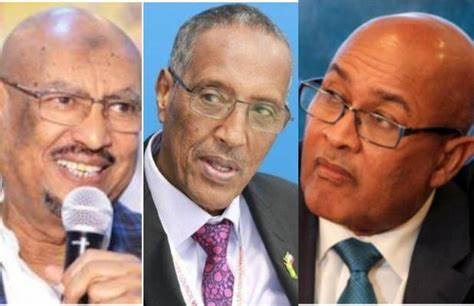
Introduction
After more than two years of political instability that shook the country's very foundations, Somaliland will conduct the long-delayed and controversial presidential election in November 2024 in combination with party qualifications elections. The presidential hopefuls are not new. It is a rematch of the 2017 presidential election. The three candidates, namely President Muse Bihi Abdi, Abdirahman Irro and Faisal Ali Warabe, faced off in the 2017 elections. Bihi won in a big majority. His closest rival, Abdirahman Irro, disputed the integrity of the elections but accepted the presidency of Bihi.
Thorny process
The 2017 election was marked by hateful speeches and clan divisions that scratched old wounds. When the President’s term was controversially extended, peaceful protestors were cracked down violently by the security forces, resulting in the deaths of civilians in August 2022.
In 2023, rebel groups established a presence in the strategic mountainous area about 90 km from the capital, Hargeisa, and claimed that their war was related to the term extension. They clashed with the police, killing at least nine police officers from the Rapid Response Unit, a paramilitary police unit.
An agreement was reached in August 2023 when clan leaders issued a decision on the sequencing of the elections and the fate of the rebels, among other election-related issues. Since then, Somaliland has embarked on the electoral process, including the passage of amended electoral laws.
Young voters
The majority of the voters are young. Many of them are first-time voters. Many more were registered before the 2021 elections, which have seen record participation of the young population as candidates and voters.
The House of Representatives and mayors elected in 2021 elections fall short of their promise which demoralized the young and first time voters.
The young are struggling with soaring unemployment. The lack of recognition means there is very little foreign investment, and external opportunities are low. Also, government policies (or lack of policies) have always been business-unfriendly. There are no proper banks in Somaliland, and the flow of finances is extremely low, negatively affecting women and the youth.
Many young people use social media to communicate beyond clan lines and discuss social issues.
Nevertheless, the presidential candidates are old. The sitting president is 76 years old and will be in 80s if he gets re-elected. Faisal Ali Warabe is 78. Abdirahman Irro is the youngest of three and is 69.
Somaliland is struggling
Somaliland is among the poorest countries in Africa. According to government records, two-thirds of the population are unemployed. Life expectancy is very low. Illiteracy is high, and school enrolment is very low. It is among the places with the highest rate of infant mortality. Moreover, climate change, geopolitical upheavals, and the war in the east deteriorated the situation.
Lack of agenda
The speeches of political leaders, including candidates, lack substance on issues and instead focus on clan affiliations. The campaign has not started, and the two main candidates have already started meeting with clans. They are not talking about poverty, unemployment, climate change or any solution to the many problems Somaliland is facing.
One would not expect a big difference when the candidates haven’t changed. However, politicians should have learned lessons from the past elections. One is to avoid divisive rhetoric and clan polarisation. We have seen the consequences of such politics.
Unfortunately, the parties seem unchanged.